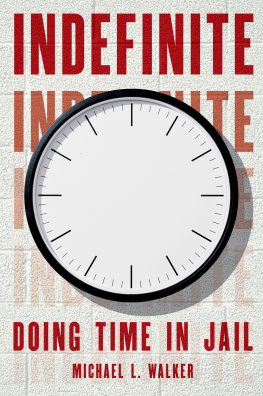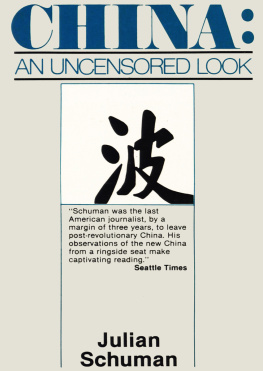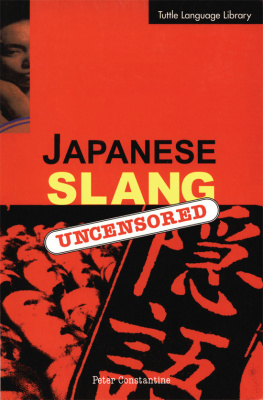About the book
When Indira Gandhi declared a state of Emergency in 1975, the people of India were deprived of their freedom and fundamental rights. The event remains a dark chapter in the history of the sub-continent. Jayaprakash Narayan, branded 'Enemy No.1'of the state, was arrested under Maintenance of Internal Security Act (MISA) and dispatched to Chandigarh's 'Emergency Jail'. Faced with the state's brute force, individuals and institutions surrendered and the world's largest democracy was drifting towards dictatorship. JP, who had tirelessly toiled for the triumph of freedom, dared the might of Emergency dictatorship and fought to restore democracy in India. During JP's six-month confinement, India's 'Second Mahatma' transformed defeat into triumph; the 'Delhi Durbar' indulged in a series of intrigues to isolate and incapacitate him, and reconciliation between Indira Gandhi and JP was sabotaged by a 'coterie' wielding 'veto power'. A riveting first-person, authentic and uncensored account by M.G. Devasahayam, who as district magistrate and inspector-general, prisons, at the time, was in effect JP's custodian, and closely associated with him throughout his confinement.
About the author
M.G. Devasahayam is an economist-administrator with firsthand experience of the working and ethos of the Indian army, the IAS, the public and private sectors, entrepreneurship, political parties, as well as NGOs. He is also an avid reader and writer. When Jayaprakash Narayan, JP as he was popularly known, was in Chandigarh's 'Emergency Jail', Devasahayam was district magistrate cum inspector-general prisons of the union territory and, as such, was JP's custodian. A humane and warm relationship developed between the two, which lasted till JP, the architect of 'India's Second Freedom', passed away in October 1979. Mahatma Gandhi, Jayaprakash Narayan and Mother Teresa were, in the opinion of the author, the three greatest human beings to walk the Indian soil this last century. The privilege of knowing and closely associating with JP has been one of the most fulfilling happenings of Devasahayam's life
ROLI BOOKS
This digital edition published in 2014
First published in 2006 by
The Lotus Collection
An Imprint of Roli Books Pvt. Ltd
M-75, Greater Kailash- II Market
New Delhi 110 048
Phone: ++91 (011) 40682000
Email: info@rolibooks.com
Website: www.rolibooks.com
Copyright M.G. Devasahayam, 2006
All rights reserved.
No part of this publication may be reproduced, transmitted, or stored in a retrieval system, in any form or by any means, whether electronic, mechanical, print reproduction, recording or otherwise, without the prior permission of Roli Books. Any unauthorized distribution of this e-book may be considered a direct infringement of copyright and those responsible may be liable in law accordingly.
eISBN: 978-93-5194-050-0
All rights reserved.
This e-book is sold subject to the condition that it shall not, by way of trade or otherwise, be lent, resold, hired out, or otherwise circulated, without the publishers prior consent, in any form or cover other than that in which it is published.
Foreword
J ayaprakash Narayan, or JP, as he was familiarly and affectionately known, was a titan in the history of modern India. In the eyes of many, his standing is the same as that of Mahatma Gandhi, Jawaharlal Nehru and Netaji Subhas Chandra Bose. This is a most astonishing accomplishment given the fact that JP, during his entire life, held no elective office or administrative post. His entire life, which exemplified the ethos of idealism, was spent in the welfare of the people of India as a legendary freedom fighter, as a Socialist Party worker, a leader of the Sarvodaya movement, as a peacemaker in Nagaland and as the conscience of India in the 1970s, before, during and after the Emergency.
We have just completed JPs centenary year. As such, JP, who has receded in the national memory of late, is, once again, at the forefront. We remember his years with Gandhi, his work within the Congress Party, attempting to ensure that it hews to socialism, alongside Jawaharlal Nehru. We remember him as the daring revolutionary who escaped from jail and went underground during the 1942 Quit India Movement, and then underwent hideous torture in the Lahore jail on being captured. We remember the Socialist stalwart who suddenly walked out of electoral politics and into the Sarvodaya movement, fashioning a philosophy centered on the villages of India, and urging the government of the day to adopt this strategy of development.
Then, suddenly, in the mid-1970s, this 70-year-old man became the beacon of hope for a disenchanted nation. A new generation listened to his indictment of the corruption and misrule into which the body politic had slipped. And thus started that maelstrom which is known as the JP movement, and which shook Indian polity to its core. The JP movement was at its most impressive and strongest in Bihar. It is useful to remember that many of todays political leaders had their baptism of fire in this movement. The movement had the support of the entire spectrum of non-Congress political parties, barring the communists. When an election petition against the then prime minister was upheld, a National Emergency was clamped on the country. All leaders including JP were put behind bars. JP was held in Chandigarh, at the premises of the prestigious Post Graduate Institute of Medical Education & Research (PGI), in view of his health. This is where the present book begins.
In 1975, M.G. Devasahayam was a young and dynamic officer, holding the post of deputy commissioner and district magistrate. I had known him when he was a probationer at the Lal Bahadur Shastri National Academy at Mussoorie. He came to the Indian Administrative Service from the Indian Army, having developed qualities of leadership. During my stint from 1976-78 as chief commissioner of Chandigarh, I found Devasahayam to be a diligent, dedicated, composed and efficient officer, who upheld the rule of law, and was fair in his dealings with all, however, high or low they might be. It fell on the shoulders of this young man to be the jailor of JP.
I, too, would have been an eyewitness or participant to these happenings of those stirring times, if for personal reasons I had not delayed for months my departure for my official assignment in Chandigarh. However, by the time I reached Chandigarh, JP had already left. It would have been a tremendous experience to meet JP again. But Devasahayam from time to time vividly and in detail described the events and interplay of forces and personalities of those unforgettable days.
Devasahayam has given us the record of the five months that JP spent in Chandigarh. It is interesting that he has waited for over 25 years to give it to us. But, as he points out, he did not want to write any half-baked book. He allowed the memories of those turbulent days to settle down, till a time came when he could take a calm and measured look at these days, and write about them through the prism of history.
Devasahayam met JP on an almost daily basis. He was concerned with the security arrangements that had to be made, the monitoring of JPs health, the screening of JPs visitors, and keeping the central government informed about JPs situation.
Many an officer would have taken these steps only as part of his official duties. Devasahayam did all these things, as the civil servant that he was, but he did one additional thing which few other civil servants would have. He seized the opportunity to talk to one of the great men of India, at what was a turning point in the history of the country. He did not treat JP as a guest of the government. He treated him as a man who had inspired millions of Indians to take up the cudgels for their rights. He looked upon him as the living connection with and embodiment of the ideas and ideals that Gandhiji instilled in those who fought for our freedom. He treated JP with the respect due him.












